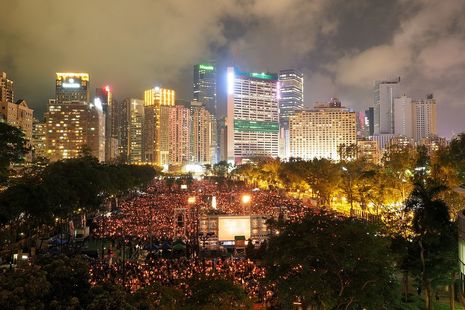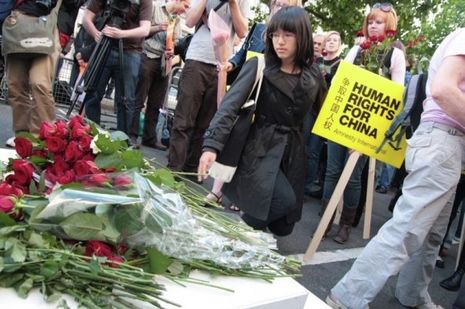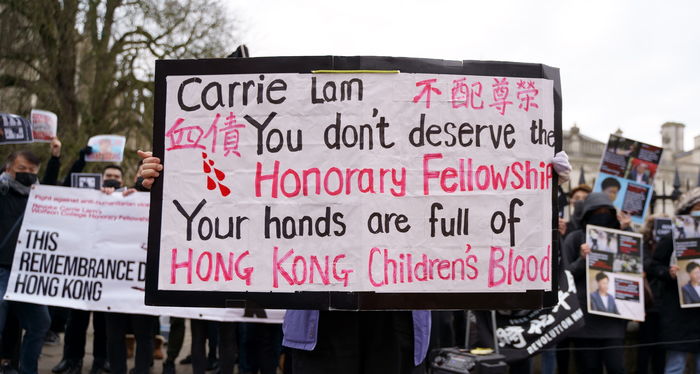Open letter calls for Cambridge graduate’s release in Hong Kong
Cambridge University Amnesty International published a letter calling for the release of Cambridge graduate Chow Hang-tung, a human rights barrister who was sentenced to twelve months in jail earlier this month (13/12)

Former members of the Cambridge University Amnesty International (CUAI) committee have written an open letter petitioning for the release of Chow Hang-tung, a former Cambridge student and CUAI member from Hong Kong, after she was convicted for calling on people to commemorate the Tiananmen Square massacre of June 1989.
Chow, a human rights barrister, studied at Cambridge between 2003 and 2010, reading Natural Sciences as an undergraduate before a master’s in Geophysics and Seismology.
On 13 December, she was sentenced to 12 months in jail after being found guilty of “inciting others to knowingly join an unauthorised assembly” for writing social media posts and newspaper articles calling on people to commemorate the Tiananmen massacre in June this year. She was denied bail earlier this week (22/12).
The annual vigil, held at Victoria Park in central Hong Kong, has been banned for the last two years on the grounds of Covid-19 restrictions. In her articles, Chow asked Hong Kongers to light a candle on 4 June “like flowers blossoming across the territory” if they felt safe to do so.
The letter’s authors are CUAI committee members from 2007-10, who worked alongside Chow and are “horrified” by the conviction.
During her time at Cambridge, Chow organised a candlelit vigil to remember the victims of the events of 4 June 1989, and protested against the 2009 visit of Wen Jiabao, Premier of the People’s Republic of China at the time.

Despite the “greater potential repercussions for her activism” that Chow faced, the letter describes her as “unflinching in her support for human rights.”
As a barrister, Chow provided legal assistance to pro-democracy activists and protestors in Hong Kong, and has advocated for the protection of labour rights and human rights in Mainland China.
Defending herself at the trial, Chow said: “If those in power had wished to kill the movement with prosecution and imprisonment, they shall be sorely disappointed. Indeed what they have done is breathe new life into the movement, rallying a new generation to this long struggle for truth, justice and democracy.”
Amnesty International pointed to her arrest as “yet another example of the chilling effect on freedom of expression and peaceful assembly in Hong Kong as authorities increasingly use the Public Order Ordinance to target activists and human rights defenders.”
This article was amended on 27/12/21 to include an image of Chow Hang-tung.
 News / Clare Hall spent over £500k opposing busway 24 December 2025
News / Clare Hall spent over £500k opposing busway 24 December 2025 Comment / The ‘class’ of Cambridge24 December 2025
Comment / The ‘class’ of Cambridge24 December 2025 News / Caius mourns its tree-mendous loss23 December 2025
News / Caius mourns its tree-mendous loss23 December 2025 Comment / Yes, I’m brown – but I have more important things to say22 December 2025
Comment / Yes, I’m brown – but I have more important things to say22 December 2025 News / Girton JCR publishes open letter expressing solidarity with Palestine25 December 2025
News / Girton JCR publishes open letter expressing solidarity with Palestine25 December 2025











